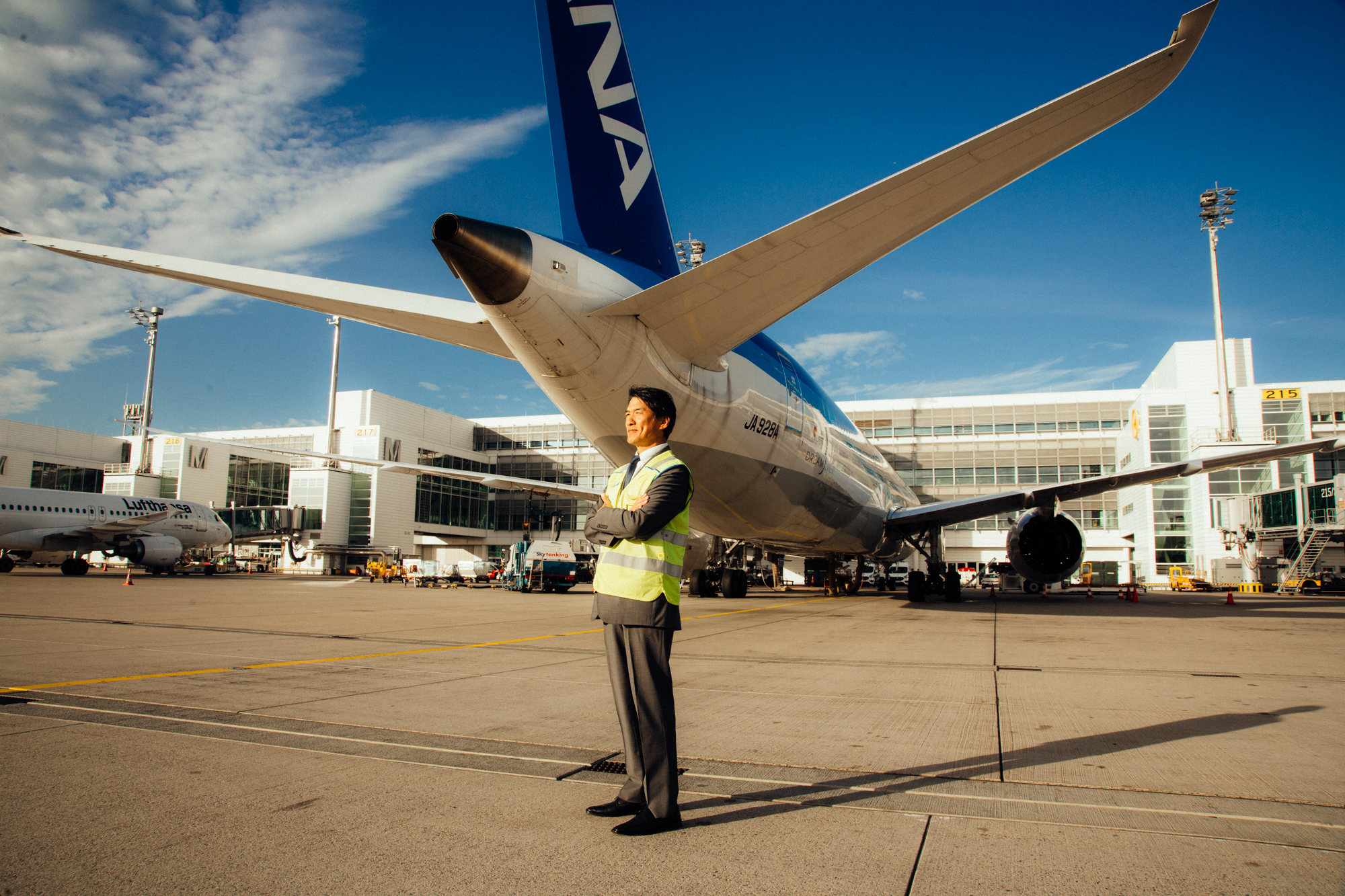Asahi Kasei is one of Japan’s leading integrated chemical manufacturers, with its European headquarters located in Düsseldorf. We spoke to Hideki Tsutsumi, President of Asahi Kasei Europe, to find out how the company has been contributing to the future of the German automotive industry since its founding five years ago, current and future projects, as well as the differences and similarities between Germany and Japan.
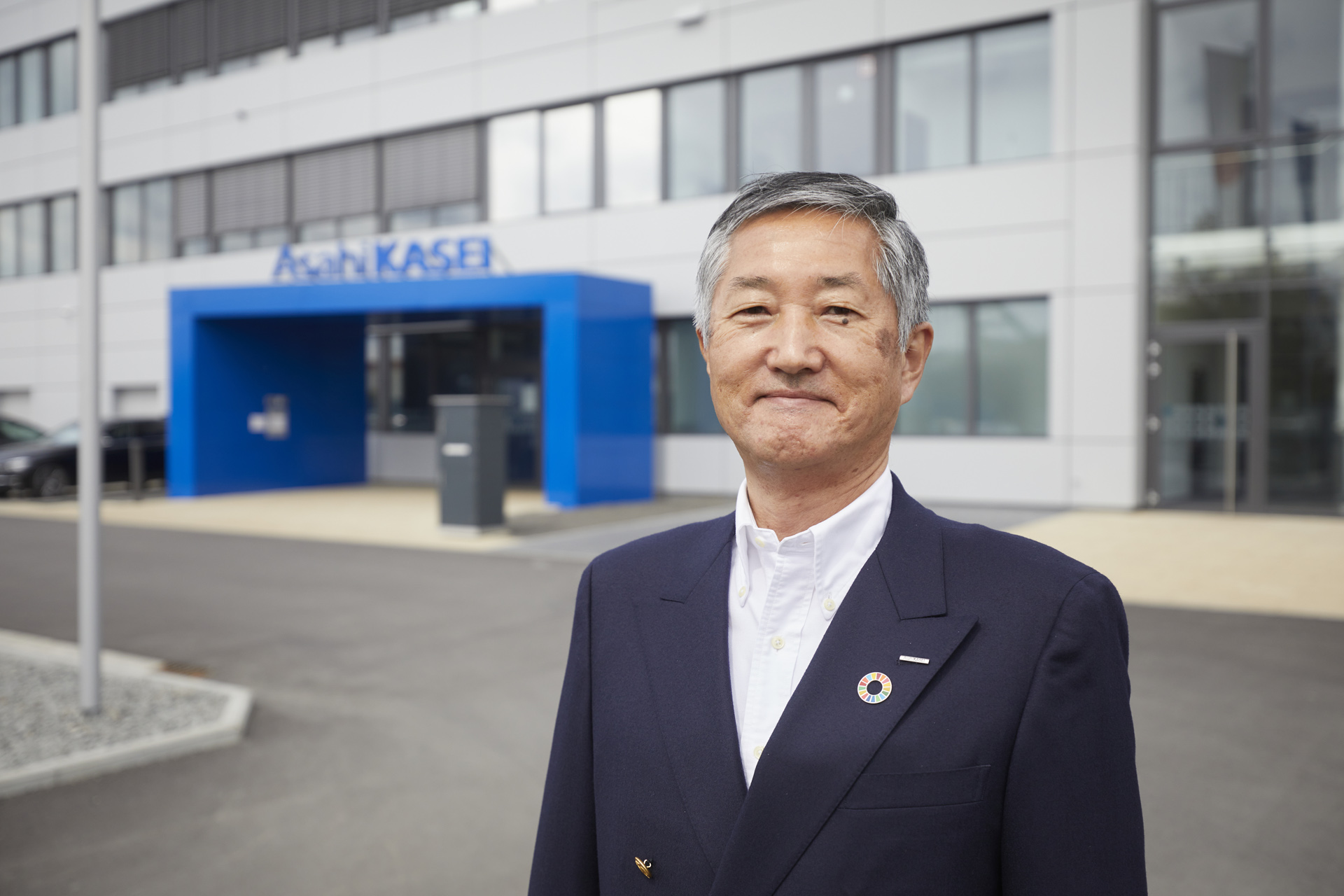
J-BIG: Mr. Tsutsumi, how would you describe the Asahi Kasei Group and its business?
Hideki Tsutsumi: We are active in three business areas: materials, housing and healthcare. In the materials segment, our portfolio ranges from basic chemicals to functional resins and films, such as battery separators, plastic wraps like saran wrap, and textiles. Through Asahi Kasei Microdevices (AKM), a global market leader in technologies such as electronic compasses used in smartphones and other applications, we also offer material solutions like semiconductors or entire batteries. In fact, our Honorary Fellow Dr. Akira Yoshino invented the lithium-ion battery (LIB) and was awarded the Nobel Prize in Chemistry in 2019. We do not produce these batteries ourselves, but we contribute the very important separator film.
In the housing segment, we build and remodel houses, offer real estate businesses such as our Hebel Haus brand, and sell autoclaved aerated concrete (AAC) and insulation materials. This area, which accounts for 33 percent of our total net sales, is mostly focused on Japan, but the US market is also growing. In Europe, however, the company has made little inroads and is very unlikely to do so in the future. Traditional Japanese houses are essentially wooden structures. In Japan, where natural disasters are very common, AAC reduces the strain on buildings during earthquakes. In fact, the Hebel Haus was born when we introduced the AAC technology of the German company Hebel in 1967. In Europe, masonry buildings are easy to maintain and can be lived in for a long time. A house that was built 50 years ago may not be considered particularly old in Germany, but in Japan, it would be one of the older ones around. In other words, Japan is characterized by a short rebuilding cycle, which creates new business opportunities each time.
The healthcare sector is a growth area, dealing with pharmaceuticals and medical equipment. Typical products include defibrillators for life-saving treatment. We have also established offices in Europe, such as Asahi Kasei Medical Europe in Frankfurt and Asahi Kasei Bioprocess Europe in Brussels.
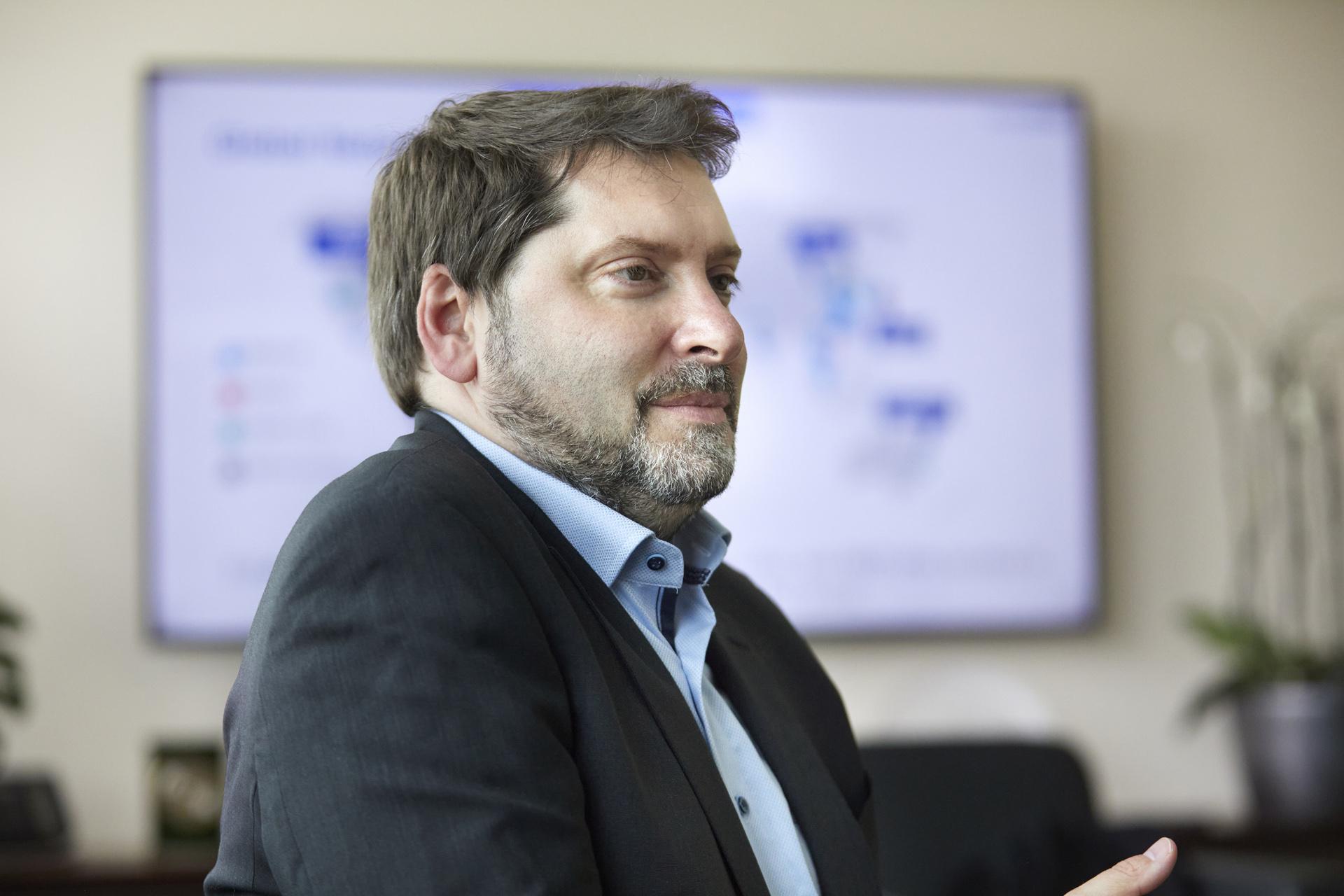
J-BIG: What can you tell us about the history of Asahi Kasei?
Hideki Tsutsumi: Asahi Kasei was founded in 1922 by Shitagau Noguchi. After graduating from the University of Tokyo in 1896, he joined the Tokyo branch of the German company Siemens. Ten years later, he founded an electric power company. Since then, he boldly took on new challenges and developed a variety of businesses. One of these was Asahi Fabric Co., Ltd., the forerunner of today’s Asahi Kasei, which manufactured rayon, a recycled fiber. The following year, a plant was opened in Nobeoka to produce synthetic ammonia, and in 1931, the company introduced technology developed by a German company to produce Bemberg cupro textile, a high-grade material derived from cotton linter. So the origins of our company lie in the textile and chemical fields.
Next year, we will celebrate our 100th anniversary, and today we employ more than 40,000 people around the world. Our headquarters are housed in an office building in Tokyo overlooking Hibiya Park, next to the Imperial Palace. We have already established a big network in Asia to facilitate further global expansion.
Free Subscription
“J-BIG – Japan Business in Germany” is the e-mail magazine dedicated to Japanese companies and their business activities in the German market.
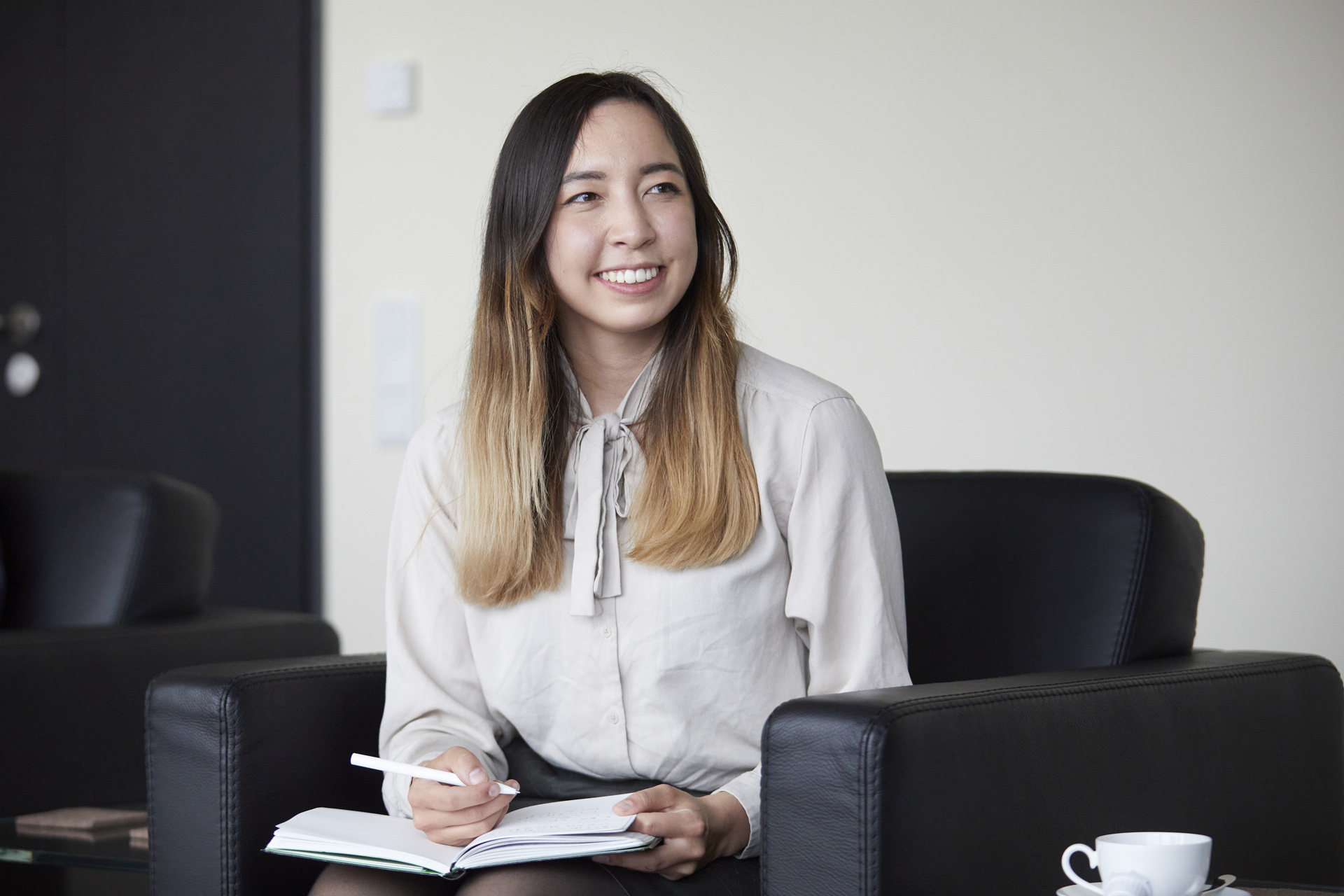
J-BIG: What is your own history with Asahi Kasei?
Hideki Tsutsumi: I joined Asahi Kasei in 1983. I started my career in sales and worked for 15 years on various projects, mainly in the Japanese market and the Asian region. After a six-year stint in Singapore, I moved to a joint venture company in Japan, where I was responsible for the petrochemical and plastics businesses. In 2016, I helped set up the German office, where I remain to this day as President of Asahi Kasei Europe.
J-BIG: How did you establish the German base and how has it evolved?
Hideki Tsutsumi: Asahi Kasei Europe was established in Düsseldorf in 2016 with the aim of expanding our business into the automotive and environmental markets. Prior to that, each of the businesses in the materials area was handled by separate operating companies in different European countries, such as Belgium, France and Germany. Initially, market and financial resources were limited, business was small, and the potential customers were mainly companies in the automotive industry. This is why I suggested to the senior management at headquarters that the businesses be consolidated in one location. And that is how our first office in Düsseldorf came into being.
Initially, our goal was to expand the materials business to the automotive industry. In the last five years, we presented our future value (FV) to OEMs and Tier 1 customers by promoting our product range, which covers a wide array of performance needs in textiles, electronics, and resins. We also presented other examples of our projects with Toyota and Honda in Japan, and before the Corona crisis, we actively participated in exhibitions and trade fairs. Gradually, OEMs increasingly requested samples of our materials. We have spent a great deal of time and effort to make them aware of the values, diverse product range and technologies that Asahi Kasei has to offer.
Now in the 6th year, we have been able to build up a good and trusting relationship with our customers. We believe that we can continue to challenge and achieve our original goals. In March of this year, Asahi Kasei Europe and Asahi Kasei Microdevices Europe, which had been located in Düsseldorf, and the European R&D Center in Dormagen were relocated to a new base in the port of Düsseldorf to integrate the three functions of sales, marketing, and R&D.
Asahi Kasei Europe started in 2016 with about 30 employees mainly in charge of marketing. We currently employ more than 100 people here. In the whole of Europe, the Asahi Kasei group recorded sales of around 900 million euros in the last fiscal year. Sales in Germany account for about 60 percent of the Asahi Kasei Group’s European business.
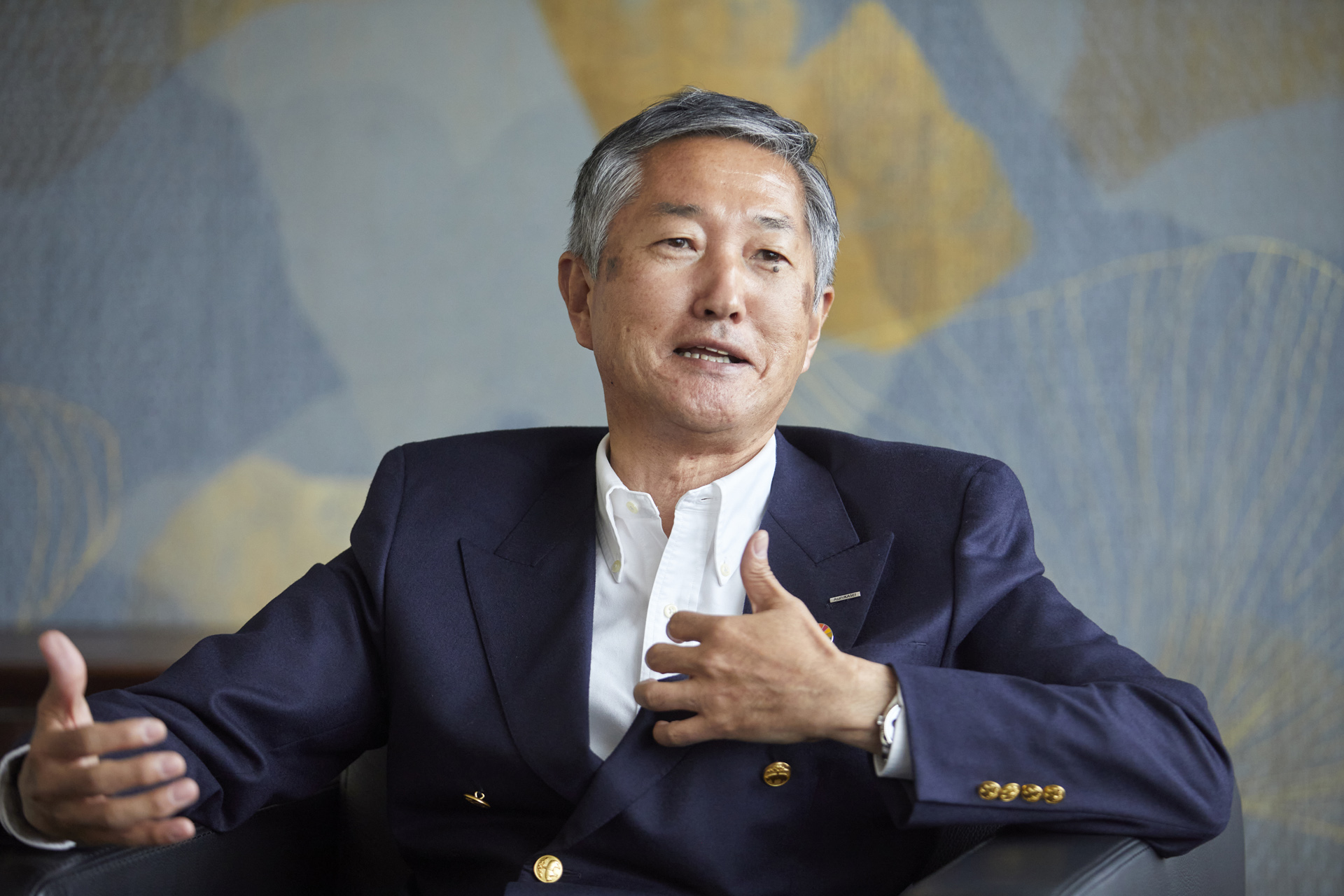
J-BIG: How will the proliferation of electric vehicles affect your company?
Hideki Tsutsumi: In recent years, the automotive industry has seen a huge wave of technological change. While there are still many OEMs that mainly focus on conventional engines, there is also an accelerating demand for electrification of the powertrain. Currently, OEMs in Japan and Europe are not taking full advantage of materials that are suitable for EVs. We feel that the timing of our market entry is very good, as OEMs are still in the research and sourcing phase for new materials. We hope that our environmentally friendly materials and systems technology for EVs will contribute to the development of the next generation of vehicles.
The automotive industry is now also facing stricter CO2 emission regulations issued by the EU and the fines that come with them. The industry is struggling to reduce the weight of the car body, which is a hindrance to carbon-neutral powertrains. This is a major challenge and requires the knowledge and cooperation of material manufacturers. For us, it’s a good opportunity to showcase our products.
Our materials are widely used in components such as EV powertrains, tires, and seats. Not only that, but we also offer solutions to create a comfortable and safe cabin space, such as sound systems, noise-cancelling features, alcohol sensors and materials for batteries that not only reduce the weight and size of the vehicle, but also shorten the charging time and make the battery safer. Furthermore, our sustainable materials are supporting the development of EVs with automated driving technology and digital connectivity.
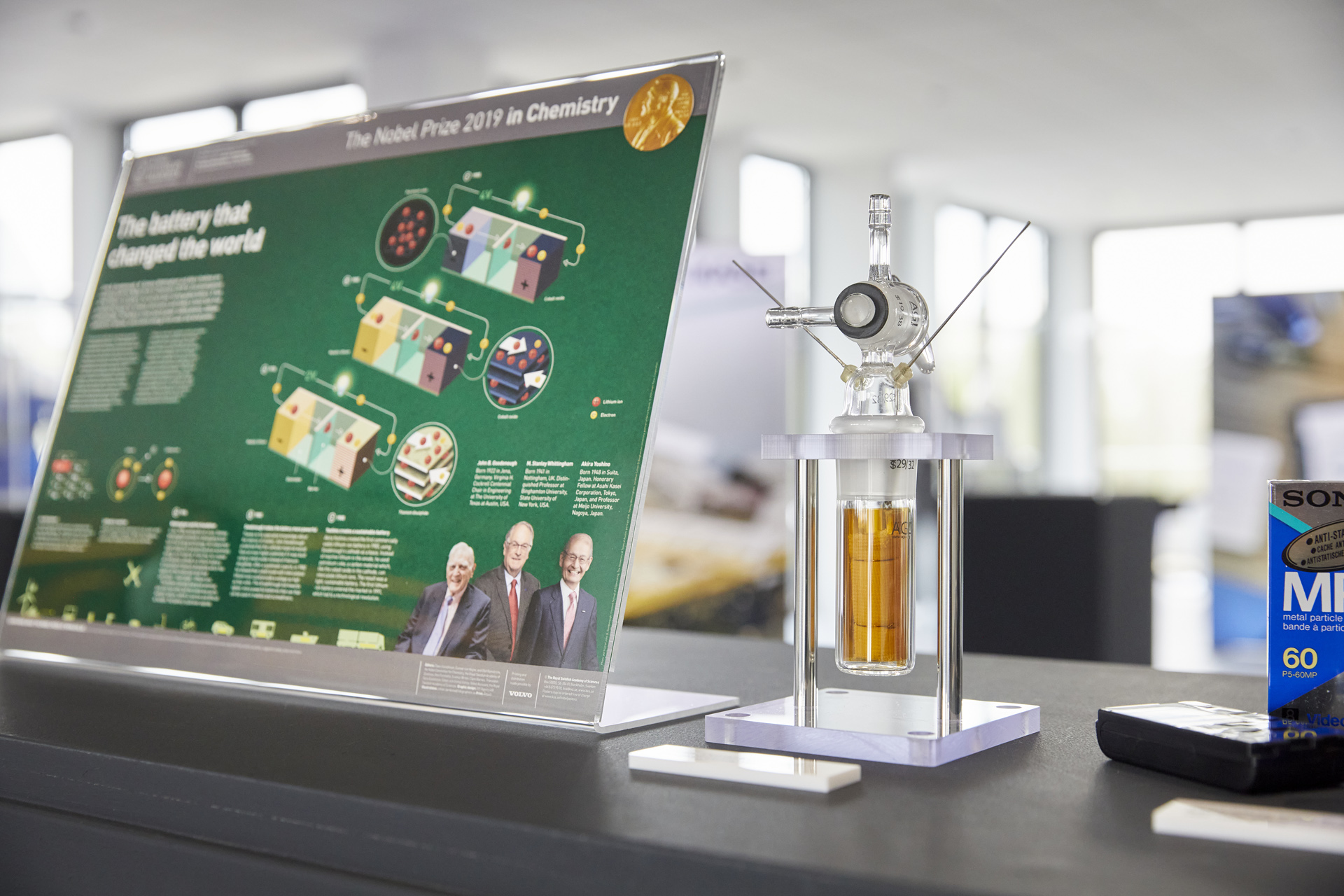
J-BIG: The automotive industry is mainly based in the South of Germany, do you plan to also become active in areas such as Munich in the future?
Hideki Tsutsumi: Of course we want to approach German OEMs, but not just one particular OEM. If our office was in Munich, we would naturally be closer to companies such as BMW, but further away from other companies. The state of NRW, of which Düsseldorf is the capital, is also home to many subsidiaries and Tier 1 and Tier 2 companies. What’s more, all OEMs are only an hour’s flight away, which is very convenient.
In Düsseldorf, we have one of the largest Japanese communities in Europe. At the time of our expansion, we were also new to life in Germany and needed to get our business up and running quickly. We chose Düsseldorf as the perfect location, where simple English is spoken and where Japanese food and culture are deeply rooted. It’s like Japan for expatriates.
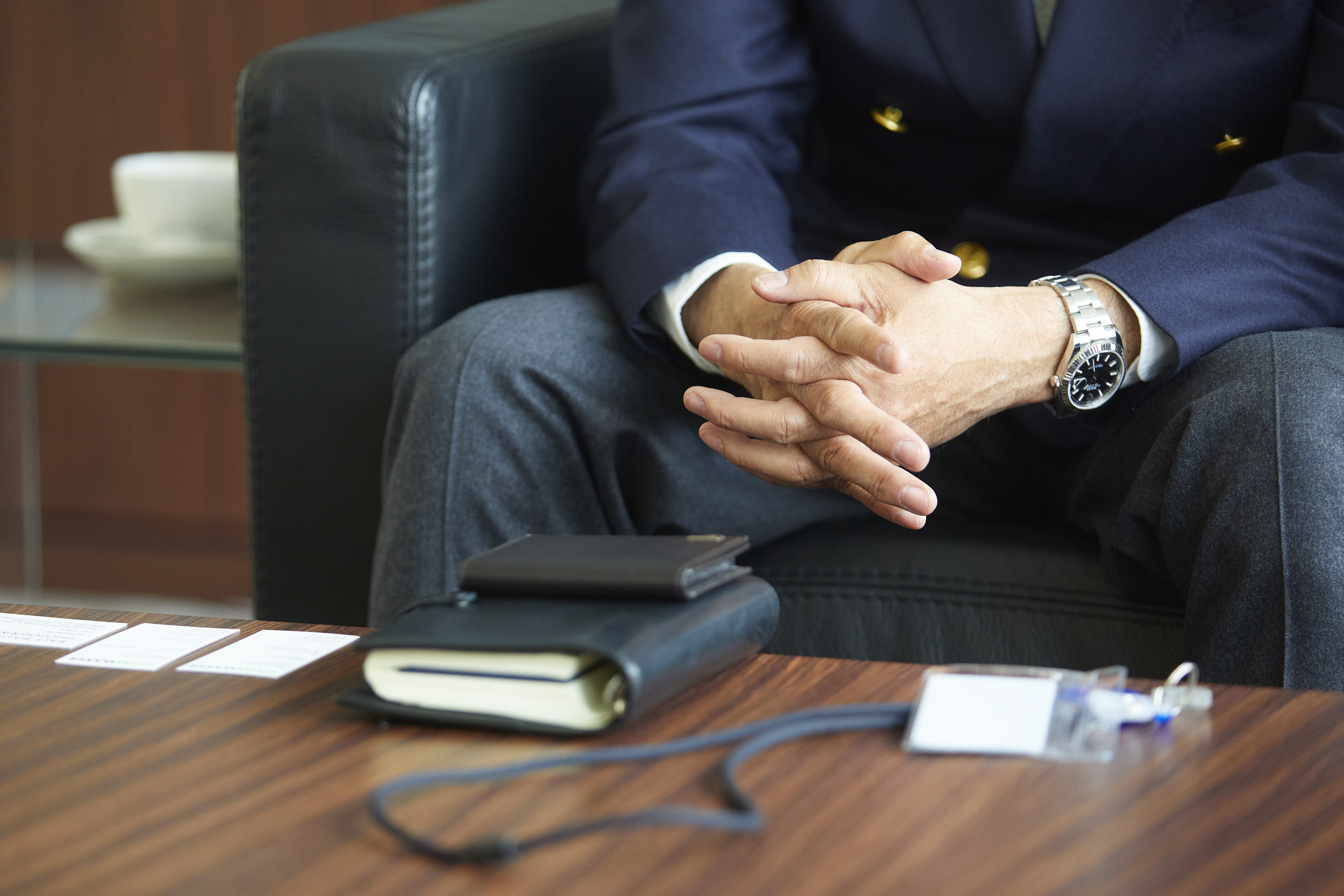
“Europe is playing a leading role in setting the direction for the future.”
J-BIG: What is the role of the German office in Asahi Kasei’s global strategy?
Hideki Tsutsumi: We ensure that headquarters takes the European perspective into account. In particular, we report from the front line when it comes to business surrounding environmental issues. Therefore, it is essential that we gather information carefully and keep a watchful eye on the social and market situation. At present, our R&D is mainly based in Japan, but we can support the development of new products by providing the right direction for the European market.
Historically, European OEMs have been pioneers in the automotive industry. Europe first took on the challenge of developing new materials and systems, followed by the USA, Japan, Korea, China and other Asian countries. The same trend is still alive and well today. Of course, some European companies are feeling threatened by the EV giant Tesla. But meanwhile, the European Parliament has called on OEMs to significantly reduce their CO2 emissions from 2025 in order to achieve carbon neutrality. Europe is playing a leading role in setting the direction for the future. The private and public sectors are working together to achieve a sustainable society. With the return to the Paris Agreement under President Biden, the United States has also made a major shift in this direction, but until now, it has been reluctant to address environmental issues.
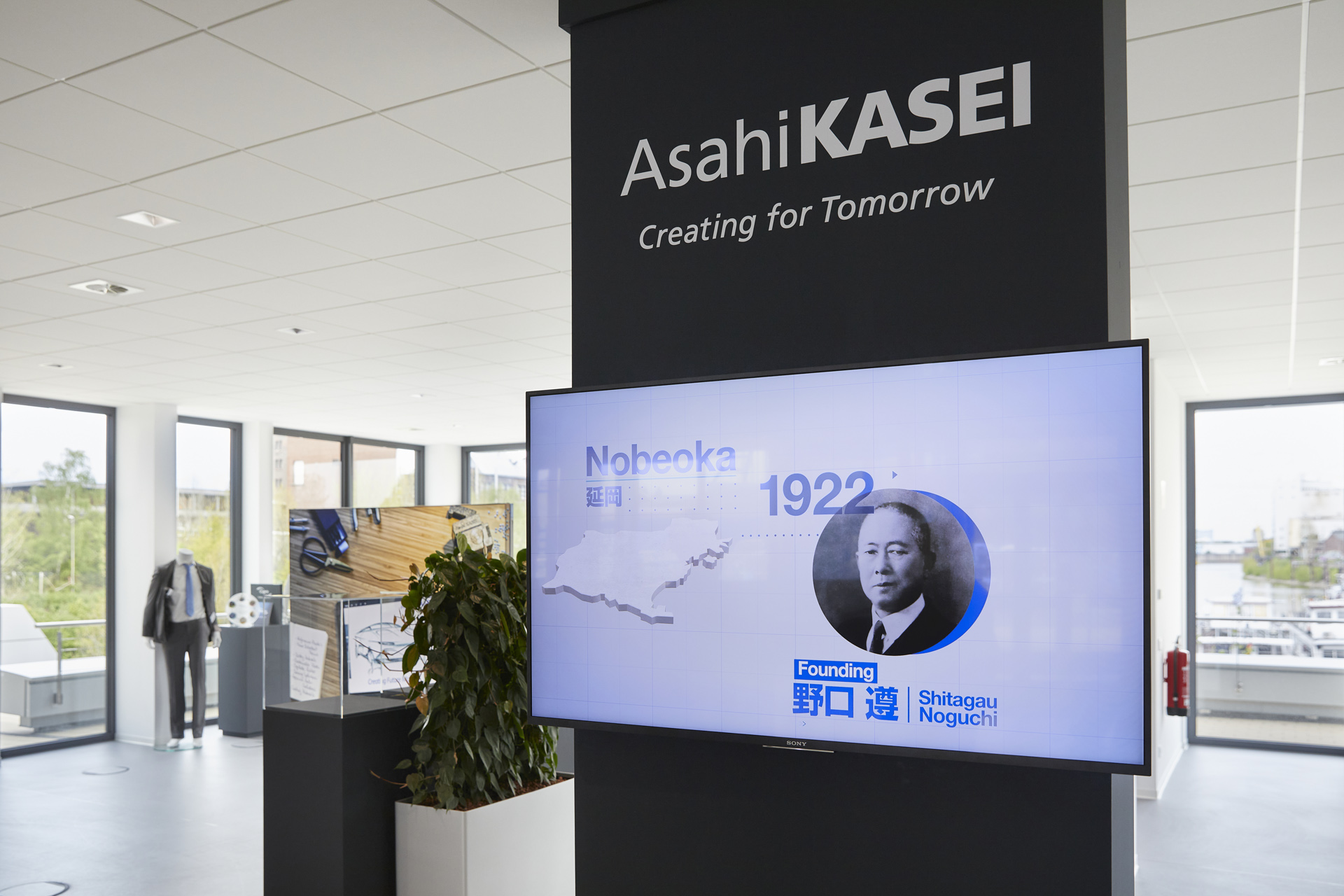
J-BIG: How do your headquarters in Japan and your office in Germany work together? And what kind of interaction did you have before the Corona crisis?
Hideki Tsutsumi: To be honest, at present, we only station expatriates from Japan to Germany. But in order to promote diversity in the workplace, we are also considering sending German employees to Japan in the future. I believe that this day is not far away.
Before the Corona crisis, we had several initiatives in place to strengthen the ties between expats and local employees, such as cross-cultural training programs. But the best thing we did was to exhibit together at trade fairs. There was also socializing through after-work dinners and company-sponsored events. When the office was small, communication was very close. Nowadays, it’s not so easy. Nevertheless, Japanese people should be exposed to the culture of Germany and other European countries even in this difficult situation. And vice versa, it is also important for local employees to get to understand the Japanese system.
For Asahi Kasei, diversity is becoming very important these days, as well. Not only Japanese expatriates but also local employees need to have a sense of ownership and ask themselves: “What is best for Asahi Kasei Europe in ten years?”. I want to create an environment where Japanese and local employees can learn from each other about different cultures and international societies.
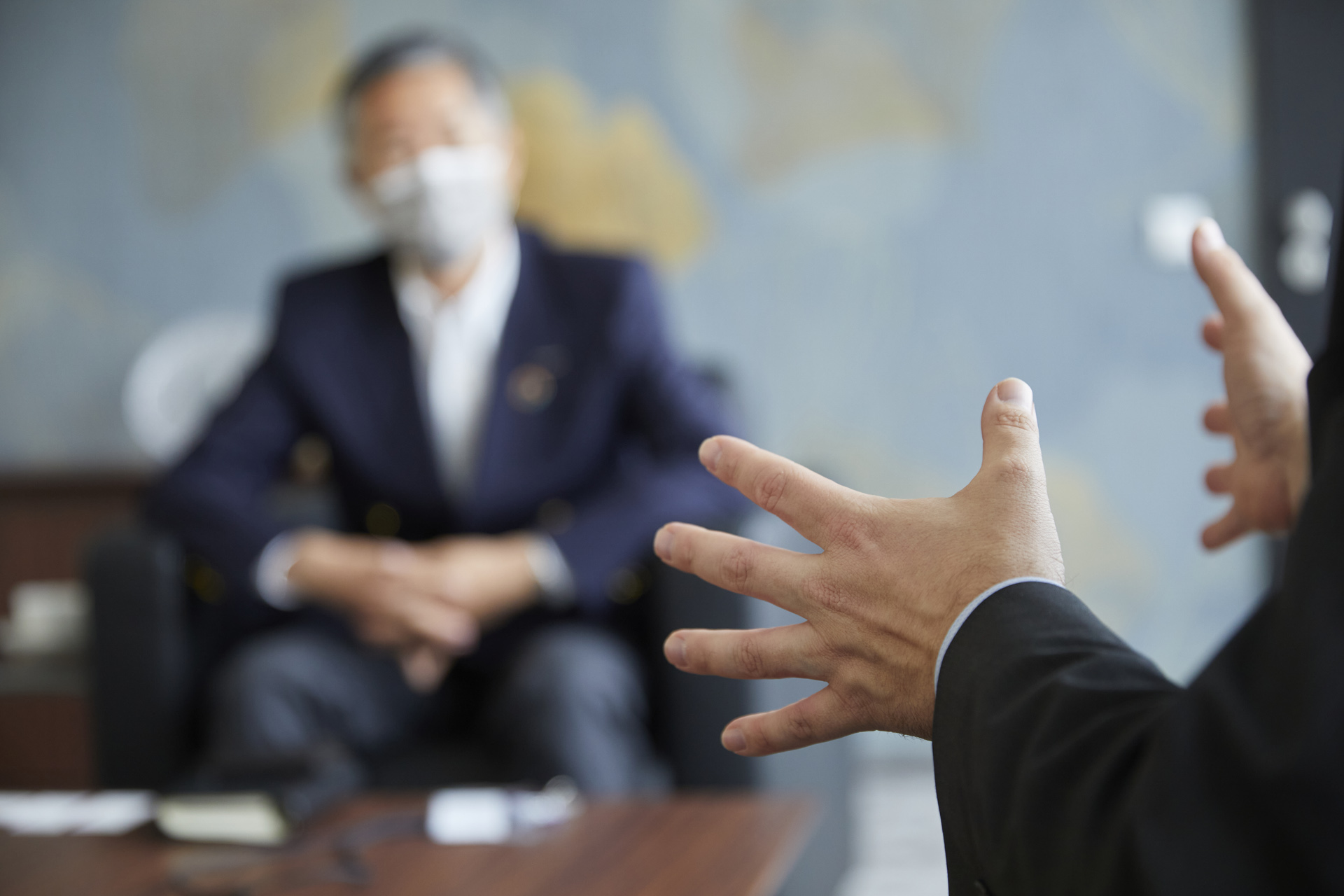
J-BIG: What do you like about Germany personally?
Hideki Tsutsumi: One of the most attractive things about Germany is the integration of nature into the city. While there is often a clear division between buildings and park areas in Japan, in Germany, an abundance of nature is very close at hand. Another detail of everyday life that I think is very good is the recycling system, where customers pay a deposit fee on plastic bottles that they get back once they return them to a designated recycling station. Furthermore, in Düsseldorf and other cosmopolitan cities in Germany, you can get by without any problems if you speak English, even if you don’t speak much German. In Japan, it is not so easy. I think Japanese people need to lose their fear of English, because by learning English, you can get information from all over the world, learn from it and modify your course. Originally, the Tokyo Olympics were supposed to be a great opportunity for international exchange.
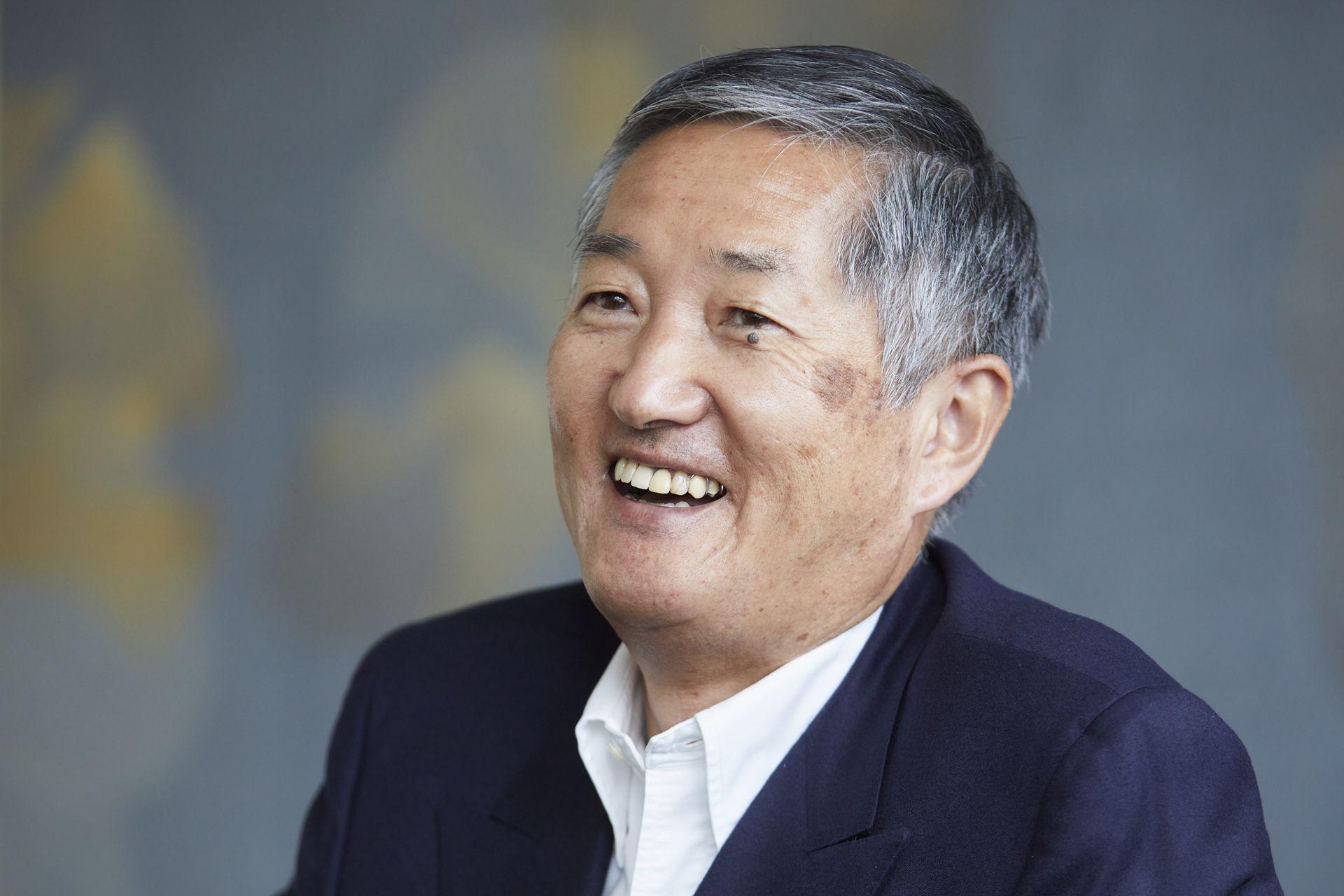
J-BIG: Finally, do you have any advice for Japanese companies wishing to expand in Germany?
Hideki Tsutsumi: I think there are two important points for Japanese companies to consider when setting up in Germany: Firstly, having a unique product or technology is very important to survive in Germany. And secondly, being proactive about environmental issues is also important. German society is very strict about unsustainable business practices, and it is difficult to be accepted if you don’t follow suit. And of course, it is always better to speak German. However, I believe that it is also possible to build trusting relationships with people by communicating in English.
Of course, no country has a perfect system. The Japanese may be good at total operations. In Germany, however, each technology is very advanced. I think the key is to find out how we can combine the best of both worlds.



